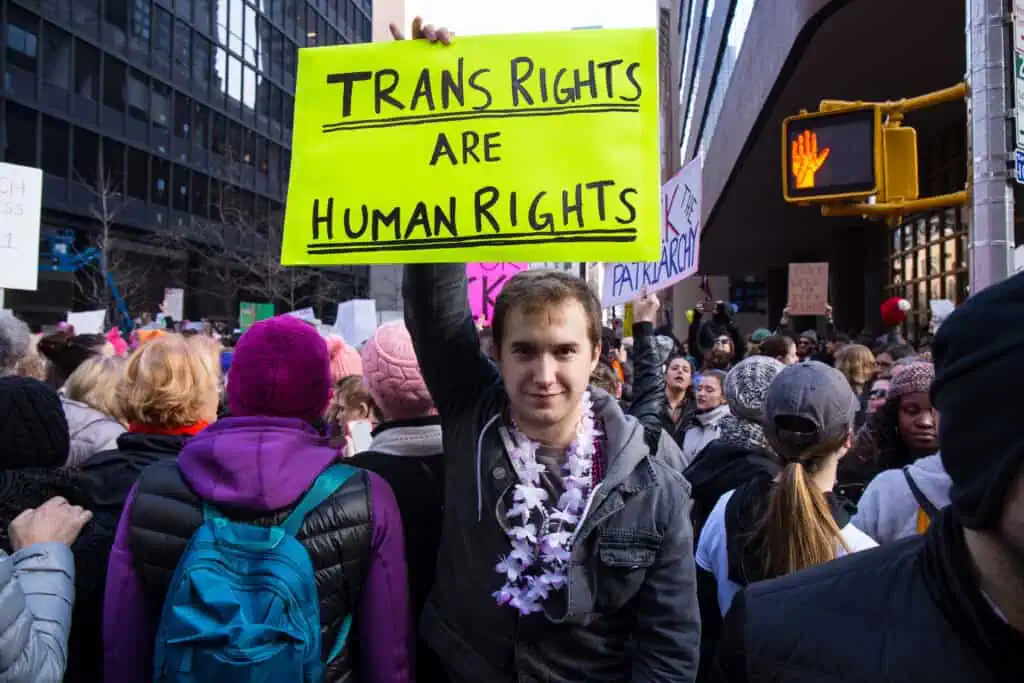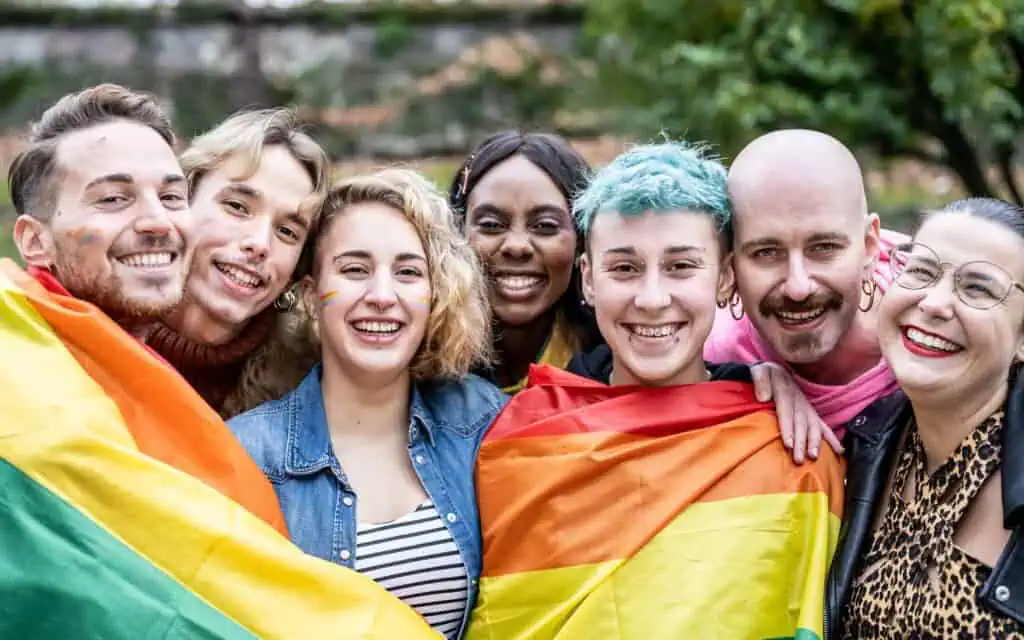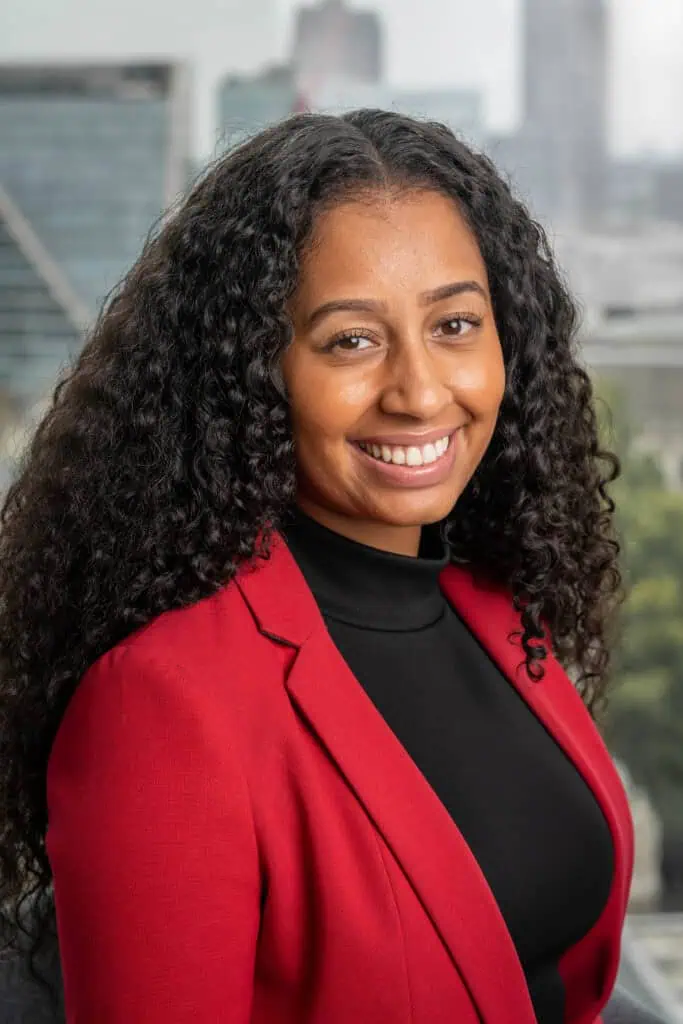Organisations and society are investing in people, processes, and policies and this is beginning to move the dial. However, the investment in ensuring people belong and feel included tends to be forgotten about when commitments are made. This investment is both tangible and intangible and is key to ensuring that every woman is acknowledged and celebrated.
As part of Moorhouse Consulting’s Women in Energy campaign, we want to shine the spotlight on the importance trans allyship. Transgender women often find themselves marginalised, with their identities and struggles are frequently overlooked. The ONS revealed hate crime statistics which confirm that England and Wales are becoming less safe places for lesbian, gay, bisexual, and trans people[1]. Hate crimes against trans people increased by 11% in 2023, which contributes to a 186% increase in the last five years.

Although the growth rates seem shocking, it is even scarier to think that fewer than one in ten LGBT+ people report hate crimes or incidents to the police, as estimated by the Government. The impacts of these hate crimes have been articulated by the National Library of Medicine[2] who determined that those with higher exposure to transgender-based discrimination had almost three times the odds of PTSD, 8 times higher odds of stress and more than 2 times the odds of depression compared to those with lower exposure.
Transgender women are disproportionately affected by such hate crimes as the result of the intersection of transphobia and misogyny. This is coupled with a backdrop of the contention following the rejection of the bill for Gender Recognition Certificates to be issued, which has been circulating for many years and gained momentum again after the tragic murder of Brianna Ghey. The most recent petition argued that Brianna Ghey should ‘have the dignity in death that everyone else in this world takes for granted’. In response, the UK Government stated that the current policy ‘strikes the right balance’ and that they had no plans to change it[3].
As a community there has also been a concerning rise in anti-trans rhetoric in the news, undermining the rights of transgender individuals such as:
- Medical Bans: Proposed legislation to restrict access to gender-affirming medical care for transgender youth, including hormone therapy and puberty blockers has been on the rise. The justification being that such care is harmful and unnecessary, denying transgender individuals their right to healthcare autonomy and dignity.
- Bathroom Bills: Legislation aiming to restrict transgender people from using public restrooms aligning with their gender identity has also started to gain traction based on fearmongering narratives about the safety of cisgender individuals, despite no evidence supporting such claims.
As we continue to fight for gender justice, we must also proactively uplift the experiences of trans women. It is only by doing so that we can honestly stand up and accelerate the progress for women. By embracing and celebrating the diversity of womanhood, we create a more equitable and just society for all. Championing Trans Day of Visibility every 31 March, Trans Awareness week (13 – 19 November) and Transgender Day of Remembrance on 20 November are a great way to start.


Going forward, let’s make a conscious effort to ensure that no woman is left behind, including our transgender sisters. Although International Women’s Day has passed, our efforts to create a world where every woman is seen, heard, and valued should be a year-long commitment so here are some useful tips to be more inclusive:
- Respect Pronouns: Highlighting your own pronouns can be a quick and easy way to generate a safe space. When engaging with a trans person, always use the correct pronouns, their chosen name and gender identity, affirming their right to self-identification.
- Be Mindful of Your Language: Be mindful of the language you use to ensure it does not add further fuel to the anti-trans rhetoric.
- Educate Yourself: Take the time to educate yourself about transgender issues and experiences. As much as the media contributes to the spreading of harmful narratives, there is also a lot of content online that can help you gain further understanding. Trans in the City run a free Trans Inclusion e-learning course, developed by Trans in the City, Global Butterflies and Cool2BTrans as well as a variety of allyship courses being available from Moorhouse Consulting including, gender justice and LGBT+ allyship.
- Be an Ally: Too often do we rely on the marginalised voices to champion their own rights, but it is so much more powerful for people to stand up and be a proactive ally. Make sure that going forward, trans voices are not excluded from conversations about gender equality and inclusion and that you contribute to creating safe environments for trans people.
Moorhouse Consulting is committed to equality, diversity and inclusion, and gender justice. For us, respecting, embracing, and celebrating individuality and diversity is just as important as delivering exceptional work for our clients so please do get in touch if you would like to discuss this article or our allyship training further.

Lauren Nicholls
Moorhouse Consulting
Please visit the firm link to site





